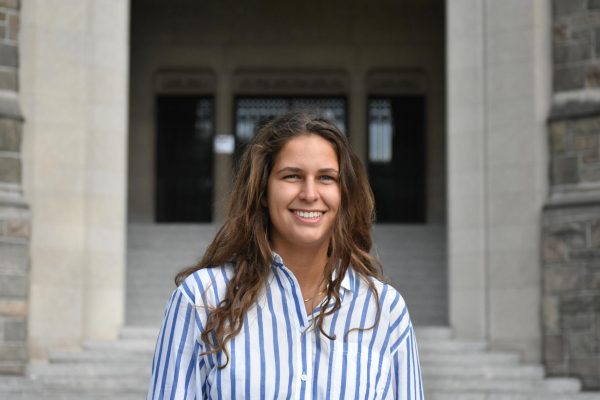The Importance of Clubs at Fordham
I can’t overstate the importance of joining clubs in your first year of college. There are as many reasons why you should join a club as there are clubs at Fordham, so, about 130 (give or take) just at Rose Hill alone. Joining a club will not only give you insight into choosing your major or help you pursue your interests, but becoming a member of an on-campus organization will also help you build relationships with other students and immerse yourself in the Fordham community.
These past few years have been defined by so much disconnection, so forming bonds with other students is more important than ever. Outlined below are descriptions of just a few of Fordham’s many clubs. Whether you choose to join a popular and prominent club like United Student Government (USG), or a lesser-known and newer one like Fordham Magic Society, doing so will help you become more engaged with your new community, and, cheesy as it is, help you “find yourself.”
Fordham Dance Marathon (FDM) is one of the most popular clubs on campus — and for good reason. FDM is a multi-tiered and almost businesslike club whose objective is to raise money to fight and raise awareness about pediatric cancer and help those who have been impacted by it. This organization is a year-long fundraising effort that culminates in (you guessed it) a dance marathon in the spring. In the past few years, FDM has raised over half a million dollars. There are many ways you can get involved with FDM: fundraising, marketing, publishing and social media. You can even work on planning fun events for children fighting pediatric cancer, who are known as the club’s “heroes.” Joining FDM is an opportunity to explore your own interests while working in service of a worthy cause.
Leading Women of Tomorrow and Smart Women Securities are two clubs with the purpose of getting women involved with traditionally male-dominated industries: politics and finance, respectively. Through discussions, education and conversations with professionals in their fields, these two clubs are focused on developing a community of like-minded, passionate women. Creating such a community does not only improve one’s experience on campus, but it also gives students a network of peers and mentors once they graduate.
Fordham is certainly not lacking in clubs that publish students’ original writing, whether it be creative writing or research-based. One of these clubs is The Ampersand. Publishing a magazine in the fall and spring semester, The Ampersand is an outlet devoted to highlighting the creative work of the student body, such as poems and short stories. Weekly meetings, held in the basement of Rodrigue’s Coffee House (a building that itself stands as a testament to the creativity and self-expression of Fordham students), often consist of workshopping and conscientiously critiquing existing work, as well as prompting new writing. The vibe at these meetings is both relaxed and engaging, and writers of all levels are welcome — as long as they are open to expanding their abilities.
I would be remiss (and perhaps fired?) if I didn’t mention The Fordham Ram, which is our university’s oldest journal of record. The staff of the Ram is a diverse and driven campus community that strives to deliver the very best for Fordham’s students and faculty, as well as the general public. Our weekly newspaper is the product of hours of peer editing and near-constant reviewing. It is truly something we are proud of, and we hope to create something that will stand the test of time, or at least remain in the filing cabinets for future Fordham students to explore. If you are interested in a collaborative and determined community, the Ram would be glad to have you. You can write, copy edit, take photos or contribute to our social media or website pages. Just email [email protected] if you’re interested in joining.

Nicole Braun is a senior from Saddle River, N.J. and she is thrilled to be a member of Volume 105! Her love for writing and editing led her to begin writing...










































































































































































































